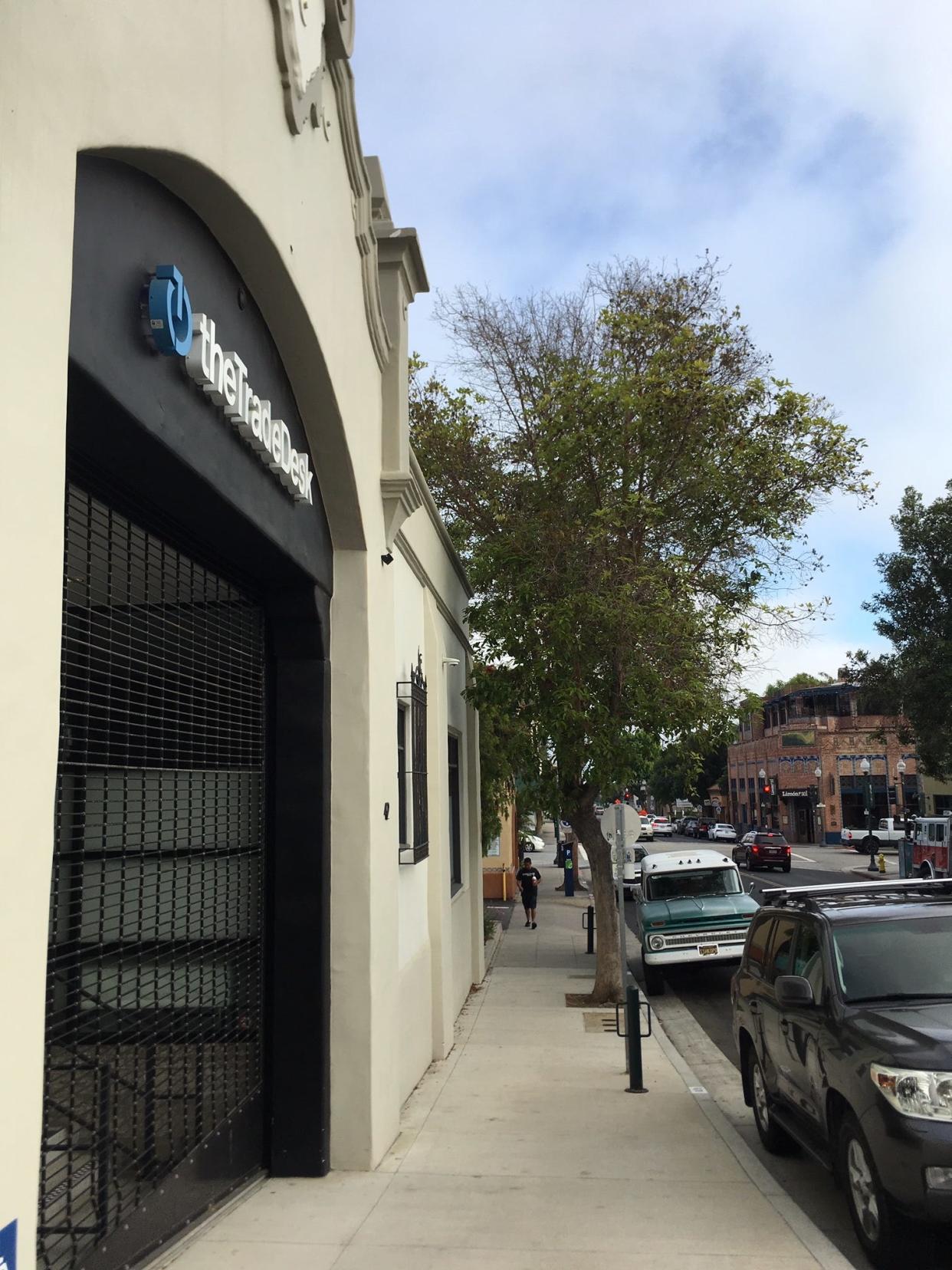Ventura's Trade Desk bucks industry trend, sees hefty profits from ads in streaming TV

While Silicon Valley’s software giants are laying people off left and right, Ventura County’s biggest company in the sector, The Trade Desk, gained more than $8 billion in stock value Tuesday after reporting record revenue and steep profit growth in its most recent quarter.
The online advertising company headquartered in downtown Ventura released its earnings report early Tuesday morning for the fourth quarter of 2022. Its revenue was $491 million, up 24% from the same quarter of 2021, and its net income, or profit, shot up 88.7% in a year, from $8 million to $71 million. The company also announced plans to spend up to $700 million buying shares of its own stock — a way to spend some of the $1.5 billion in cash and short-term investments the company had piled up as of Dec. 31.
After the earnings release, The Trade Desk had its best day on Wall Street in the past six months. Its shares closed at $66.30 on Tuesday, up 32.8% from the day before.
The Trade Desk is the second biggest publicly traded company in Ventura County by market capitalization, behind only Amgen, the Thousand Oaks-based biotechnology giant. The Trade Desk’s market cap — the total value of its outstanding shares — stood at nearly $32.5 billion on Wednesday.
The company’s biggest individual shareholder is its CEO and co-founder, Jeff Green. According to Forbes magazine, Tuesday’s stock gains drove Green’s new worth up to $3.6 billion, a gain of $600 million in a single day.
The key to The Trade Desk’s growth is something the advertising industry calls “connected TV,” or CTV, and what most consumers call “streaming,” as opposed to traditional “linear TV.”
Nearly every major streaming service now offers a free or discounted subscription tier with advertising, and The Trade Desk is the industry leader among independent firms that sell ads on those services. The Trade Desk's competitors include other advertising firms, as well as big internet companies that sell ads alongside their own content in a “walled garden,” such as Alphabet, the parent company of Google and YouTube, and Meta, the parent of Facebook and Instagram.
“CTV is changing everything in advertising,” Green said Tuesday, during a conference call to discuss The Trade Desk’s earnings with analysts and investors. “Advertisers are shifting dollars from linear to connected TV, and more spend is happening outside the walled garden.”
Total global advertising spending grew about 8% in 2022, Green said, while spending on The Trade Desk’s platform, driven largely by CTV ads, grew more than three times that fast.
“They’re operating in a market that’s growing fast, and they’re gaining market share," Vasily Karasyov, the founder of Cannonball Research and a stock analyst who covers The Trade Desk, told The Star.
The Trade Desk bet big on ad-supported streaming a few years ago, and the bet is paying off, Karasyov said, with more than 40% of the company's revenue now coming from connected TV.
Karasyov had a price target of $65 for The Trade Desk's stock, and said he planned to revise that assessment in light of the company "blowing through that" on Tuesday.
Another analyst who covers The Trade Desk and the digital advertising sector, Ali Mogharabi of Morningstar, said he thinks the company's stock was "slightly overvalued," even before Tuesday's gains. His price target for The Trade Desk is $43 per share.
"However, these guys continue to execute very well," he said of The Trade Desk's management. "Their traction within the connected TV market is pretty impressive, and that part of the digital ad market is growing much faster than the overall digital ad market."
Mogharabi isn't a fan of the stock buyback plan, though. In a buyback, a company purchases shares of its own stock. It's one of a few outlets that profitable companies have for the cash they generate; the other ways include paying dividends to shareholders, acquiring other companies, or re-investing the profits into the company's operating expenses.
A buyback reduces the number of the company's shares in circulation, which tends to drive up the per-share price. It also boosts a company's earnings per share, because the profits are divided by a smaller number of shares.
But those effects, while they may result in stock gains, aren't creating a real increase in the company's value. And if a buyback comes when the stock price is relatively high, the company may wind up overpaying for its own shares.
"Investing in further innovation on their platform, in terms of investing more in the research and development side, could be beneficial for the company, rather than repurchasing shares at prices that, based on our valuation, we think are pretty high," Mogharabi said.
On the whole, though, Mogharabi said he's impressed by the leadership of Green and The Trade Desk's other executives.
"No one really thought that an independent ad tech provider could compete effectively against the behemoths like Google, but these guys are doing pretty well," he said.
Tony Biasotti is an investigative and watchdog reporter for the Ventura County Star. Reach him at tbiasotti@vcstar.com. This story was made possible by a grant from the Ventura County Community Foundation's Fund to Support Local Journalism.
This article originally appeared on Ventura County Star: The Trade Desk reports record revenue, steep profit growth

